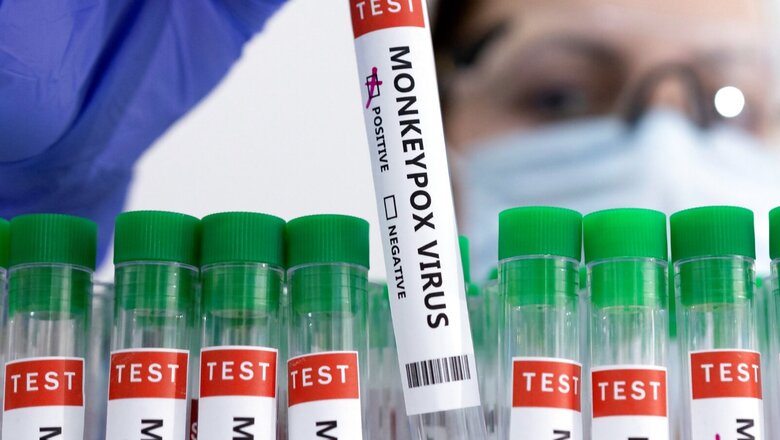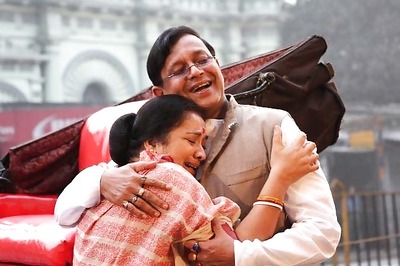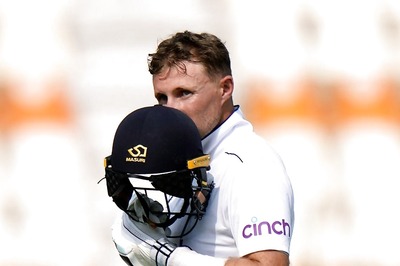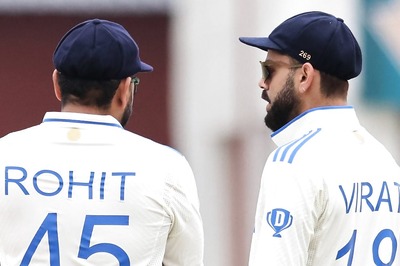
views
The national capital has reported its fourth case of monkeypox, with a 31-year old Nigerian woman testing positive. Incidentally, all monkeypox infections reported in Delhi so far are among Nigerians residing in Delhi and with no recent travel history or contact with someone who did. While one patient has been discharged, the other three are still undergoing treatment at Delhi government’s Lok Nayak Jai Prakash Hospital (LNJP).
In an interview to News18 on Thursday, Dr Suresh Kumar, Medical Director of the LNJP Hospital, said that while it is too early to speculate on any surge in moneypox cases in Delhi, the national capital has been “well-prepared” since India’s first case was reported in Kerala. He added that while the mortality rate of the monkeypox virus among non-immuno-comprised adult population is low, habits cultivated during the Covid-19 pandemic, like hand hygiene and triple-later masks, remains gospel.
Edited excerpts
How many monkeypox patients have you admitted so far and were there admissions of any suspected cases today?
In total, we have had four admissions so far. The initial patient was admitted in July and three more were admitted as suspected cases. One has been discharged after turning negative. Right now, we have a total of three cases in the LNJP Hospital, and, one patient was discharged because he recovered from the monkeypox virus. There are no suspected cases (in the hospital) as on today.
Monkeypox cases in Delhi have been reported on two consecutive days. Do you feel there is a need to be more vigilant and more alert now?
Right now, there is no need to panic but we have to be more vigilant. We have to be more careful and we have to see if any patient has skin problems, skin lesions which look like a monkeypox virus infection. They must be isolated at an early stage and must have timely consultation with the doctor so that the PCR testing can be done. If you have fever, skin lesion along with history of contact, it is very important that you go to the hospital, consult a doctor and get yourself tested. That is the only way we can separate infected patients from the others.
Yesterday, the patient who tested positive for monkeypox, incidentally the first woman who tested positive, is also from Nigeria like the other three patients. Is there concern when it comes to this particular community in Delhi?
You see, we have many patients who are referred to us from the African continent and we focus more on their behaviour, their contacts, their family, their workplace and their household contacts. So these three patients are from African countries and they were residing in Delhi for a long time. One patient was working in a restaurant for one year. Similarly, two other positive monkeypox patients were also in Delhi for a long time. And we are trying to find their contacts, their friend circle. Sometimes, they have issues of language and more. So, definitely we need to have more surveillance and more contact-tracing.
Is Delhi well-prepared to handle a possible outbreak of monkeypox?
Definitely, we are well-prepared. We started preparations when the first case in Kerala was reported. We have all the protocols in place, the SOPs, the Government of India guidelines and WHO guidelines that we are following. We are also protecting our healthcare workers, doctors and staff; how they must take proper pre-action so that there is no spread among the healthcare workers.
We are very happy that the first patient recovered and we must congratulate our team that they did an excellent job. We hope that the other three patients, who are in the recovery phase, may recover very well and very soon.
Can you tell us a little more about what healthcare workers are doing to protect themselves?
We have given a two-month special training to them, how to handle these cases, how to send the sample, how to make a separate corridor for them, how to isolate the patients as well as those who are confirmed cases. We also provide them with everything that is needed as per WHO, ICMR, GoI guidelines. PPE kits are a must, including protective goggles. For healthcare workers, we recommend N95 masks. For general public, we recommend simple triple-layer masks.
We are providing all this protective gear to our doctors, nurses and technicians and those who are on duty round-the-clock. It is very important to know how to dispose of a patient’s utility items like bedsheets. We have separate and dedicated infection control team in LNJP Hospital to take care of all these issues.
Can you tell us a little more about the fourth patient who tested positive for monkeypox yesterday?
She a young woman of 31, as per records. She has been having fever for five days. She had skin eruptions over her face, abdomen, hands and thighs. She had mild headache, body ache and she also had ulcer in her mouth. As of now, the fever is subsiding and skin lesions are in recovery phase.
She may take one to two weeks more for complete recovery of her vesicular pustular rash. There is no major organ involvement. Her X-ray and blood tests are also normal. We hope that her skin lesions and generalised weakness will get resolved. A team of dermatologists, physicians and infectious diseases specialists are looking after her and attending to her round-the-clock.
What about the other two patients who are still admitted?
They are much better now. Their pulse, blood pressure and vital parameters are all stable and we are giving then supportive treatment. They are recovering well.
Looking ahead, do you foresee an outbreak of monkeypox cases in the national capital?
Right now, I cannot say because we have to observe for some more time. Right now, there are only four cases. We can’t predict on the numbers. It is too early to say whether there will be a surge.
None of these patients have recent travel history?
Yes, that is correct. Most of the cases that have been reported from Kerala have international travel history, but these patients in Delhi were all residing here. They have history of previous travel. For instance, one patient had travelled a month ago and other three patients do not have any recent international travel history. But they have a history of contact with other friends.
You mean they had contact with other people who had intentional travel history?
One patient had travelled to Himachal Pradesh, another had travelled to Mumbai. They have no recent international travel history but they have previous international travel history (that is one month ago).
How do you read this? People with no recent international travel history being diagnosed with monkeypox?
When we see the literature, the clinical evidence, countries that the WHO is reporting… this disease is endemic in the African continent whether it is Congo, Nigeria or most of the central African countries. This disease is there in the population. We have a lot of people coming to India for studies, jobs, other business purposes and they have the virus. But by and large, this virus is new for the Indian population. This virus has been there for decades in African countries.
You said earlier that this is a self-limiting disease and it has a morbidity of just 1%.
Different studies have different mortality patterns. The mortality pattern is usually between 1% and 3% in normal individuals who have good immunity. But it can be higher, that is more than 3% in the population of immunocompromised. Here mortality is even higher, up to 5% in HIV patients, cancer patients, organ transplant patients.
Mortality depends on the status of immunity of the individuals. The mortality of patients on dialysis, on steroids for some illness, or those who have high-risk sexual behaviour is different than that of the general population. Then mortality is different for paediatric population where immunity is low. So it depends. But by and large, for the adult population with normal immunity, the death rate is less than 3%.
What do people have to do to protect themselves?
This is transmitted by droplet infection. So avoid close physical contact. Hand hygiene is very important. Wear masks and if you have any suspected cases, then don’t share towels, bedsheets, bed or toiletries with the patient.
Read the Latest News and Breaking News here


















Comments
0 comment